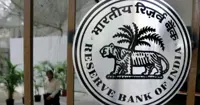The Central Government has notified the structure of the National Startup Advisory Council being set up to advise the government on measures needed to build a strong ecosystem for nurturing innovation and startups in the country to drive sustainable economic growth and generate large scale employment opportunities.
The National Startup Advisory Council will have commerce and industry minister Piyush Goyal as its chair, an official release stated, adding that members of the council will be announced later.
The National Startup Advisory Council will consist of non-official members, to be nominated by central government, including founders of successful startups, veterans who have grown and scaled companies in India, persons capable of representing interests of investors into startups, persons capable of representing interests of incubators and accelerators and representatives of associations of stakeholders of startups and representatives of industry associations.
The term of the non-official members of the Startup Advisory Council will be for a period of two years.
The nominees of the concerned ministries/departments/organisations, not below the rank of joint secretary to the Government of India, will be ex-officio members of the council. Joint Secretary, Department for Promotion of Industry and Internal Trade will be the convener of the council.
The council will suggest measures to foster a culture of innovation amongst citizens and students in particular, promote innovation in all sectors of the economy across the country, including semi-urban and rural areas, support creative and innovative ideas through incubation and research and development to transform them into valuable products, processes or solutions to improve productivity and efficiency and create an environment of absorption of innovation in industry, says the release.
It will also suggest measures to facilitate public organisations to assimilate innovation with a view to improving public service delivery, promote creation, protection and commercialisation of intellectual property rights, make it easier to start, operate, grow and exit businesses by reducing regulatory compliances and costs, promote ease of access to capital for startups, incentivize domestic capital for investments into startups, mobilise global capital for investments in Indian startups, keep control of startups with original promoters and provide access to global markets for Indian startups.




.webp)


























